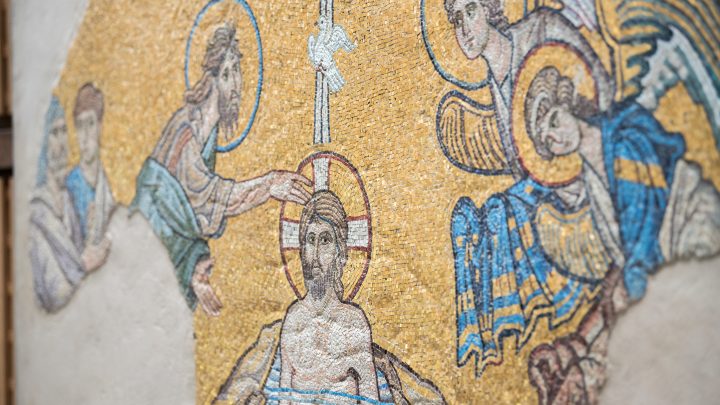The Week of Prayer for Christian Unity takes place this year from January 18-25. The theme is “Do You Believe?” and is based on Jesus’ conversation with Martha in John 11: “I am the resurrection and the life. Those who believe in me, even though they die, will live, and everyone who lives and believes in me will never die. Do you believe this?”
The theme was chosen in recognition of the 1700th anniversary of the First Council of Nicaea (325), at which the words “I believe” were chosen to anchor the Creed as an instrument of universal Christian unity. For each day during this Week of Prayer for Christian Unity, the members of the Christian Unity and Interreligious Relationships (CUIR) committee will share a series of devotions based on the statements in the Nicene Creed.
You can now view all eight of these devotionals on our website.
Day 8: We believe in one holy catholic and apostolic church. We acknowledge one baptism for the forgiveness of sins. We look for the resurrection of the dead, and the life of the world to come. Amen.
Praying the final verse of the Nicene Creed, we confess our true belief in the unity to which Christ calls us as he prayed his priestly prayer of John 17: that indeed, “they will be one, Father, just as you are in me and I am in you. I pray that they also will be in us, so that the world will believe that you sent me” (John 17:21 CEB).
Nevertheless, we live in such a divided and divisive world. While the world embraces an “us vs. them” mentality, it so often seems the Church does, too. We see this in our own denomination as we timidly emerge from schism, a time in which members from both the United Methodist Church and the Global Methodist Church have both felt and dealt hurt and harm through words and actions against those with whom we theologically disagree. This is not a unique story in Christian history. And yet, throughout the ages, our traditions continue confessing the “oneness” of the Church which Christ has founded while choosing to go our separate ways.
It was Archbishop of Uppsala Nathan Söderblom who famously declared, “the world is too strong for a divided Church.” His statement rings just as true in today’s landscape as it did at the Life and Work Conference of 1925. When we confess the Church as ‘catholic,’ we affirm that it is universal, transcending borders, cultures, and confessional divides. What shared witness do Christians make to the world when we do not live in Christian love within our own ecclesial identities?
Christian unity is a gift from God; it is not something we have to create, but rather we have to acknowledge we have departed from such unity, working and serving to bring it about once again. This unity in Christ is grounded in our common baptism.
When we enter into the sacrament of baptism, we are no longer who we were before. Indeed, “baptism is the sign of new life through Jesus Christ. It unites the one baptized with Christ and with his people” (Baptism, Eucharist, and Ministry, II.2). Through baptism, our old life passes away and we are created anew. When we affirm our common baptism, we acknowledge the collective nature of the Church. Baptism is not baptism into a denomination; rather, through the sacrament we are initiated into Christ’s holy Church and incorporated into God’s mighty acts of salvation. Through God’s abundant grace, the congregation shares in remembrance of our own baptisms, celebrating with the newly baptized that indeed, “we are all one in Christ Jesus.”
Just as all Christians are initiated through the sacrament of baptism, so too do all Christians join together in the hope of the Christological refrain: “He is Risen! He is Risen, Indeed!” As Christians, we are Easter people, living in the abundant hope of resurrection even in the midst of a world so often full of death and decay.
To each of these creedal affirmations, we conclude by joining in a collective “amen.” Indeed, “truly,” this is what we believe; these are the essentials of our faith. Church traditions and denominations will always have differences of opinions – from liturgical practices to theological debates. In the creed, however, we confess our essential reality; that which binds us together to those whom we might otherwise disagree. In confessing the creed, we confess our unity, not that which divides us.
As we conclude this Week of Prayer for Christian Unity, in reflecting on the Nicene Creed, it is my hope that you will be challenged to lean further into Christian unity and reflect more fully on the Nicene Creed. The creed is not simply another part of the liturgy, but rather a confession with profound implications for each of our lives and the collective life of the Church. As we seek for Christian unity, let us focus on what joins us together, not that which separates us.
Miles Baker Hunt is a member of CUIR and a provisional elder in the North Carolina Conference. He is currently completing post-graduate studies with the World Council of Churches in Geneva, Switzerland.
Photo by Albin Hillert, 4 October 2019, Geneva, Switzerland: Ecumenical Centre, Geneva.

